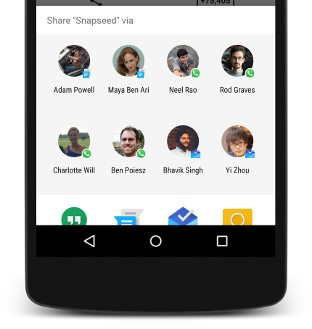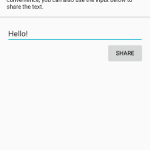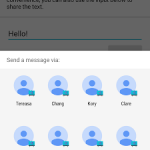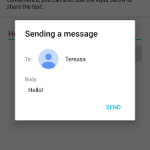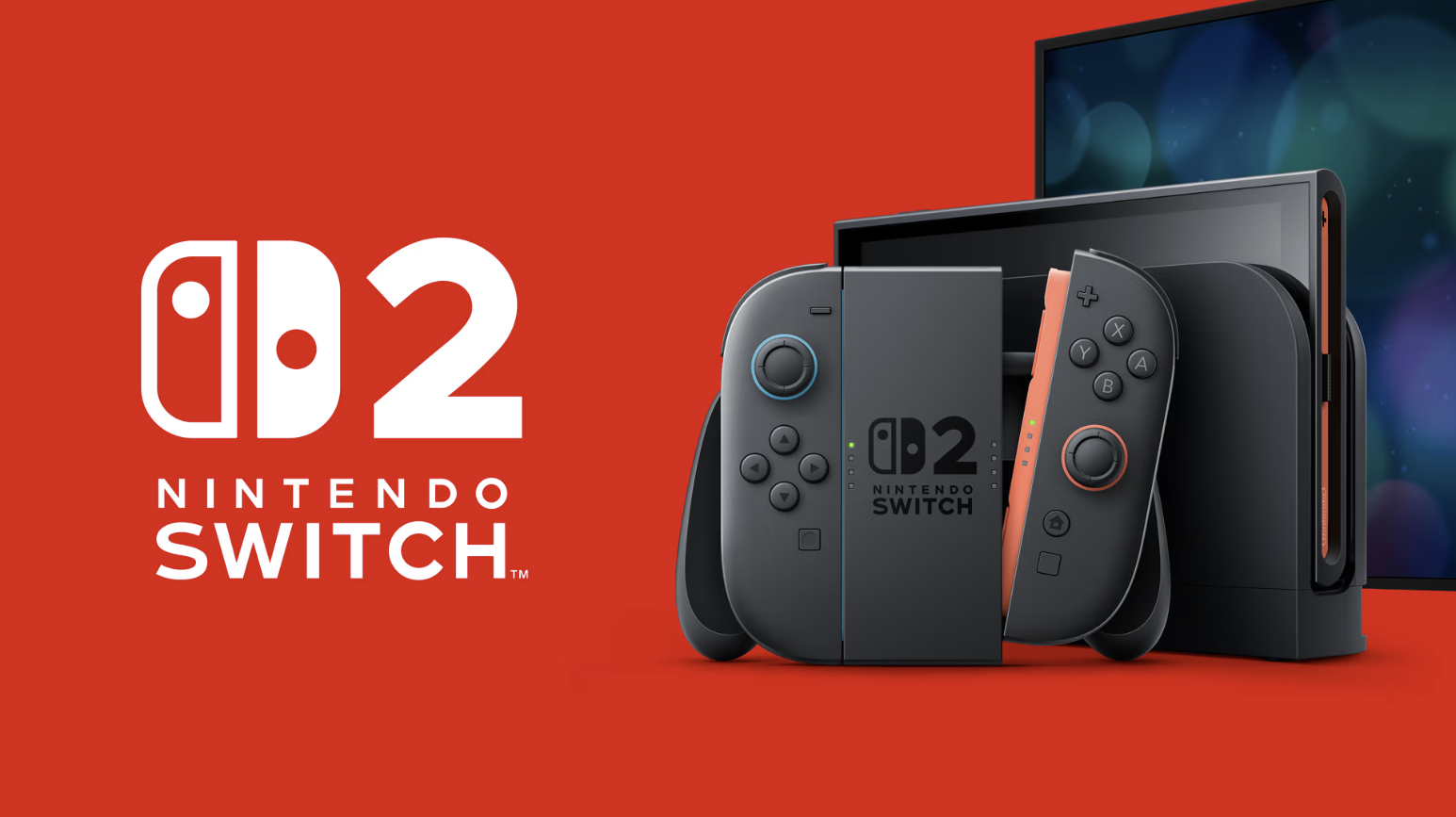
Google has a history of releasing sample apps to provide developers with a guide/ template for utilising features buried within the Android operating system. Today they have released 3 such sample apps to the dev community.
The first of the three apps is by far the more interesting to regular android users as it demonstrates how to incorporate Android 6.0 Marshmallow’s new sharing system ‘Direct Share’. The other 2 apps might be of interest to the musicians amongst us as they demonstrate new MIDI functionality coming in 6.0.
Android’s sharing system – known as sharing intents – is one of those background features that you may not notice but make the Android experience smoother and more consistent. Whenever you hit the share option in an app or menu and the sharing box pops open that is using Android share intent system. In Android 6.0 the sharing intend is being extended deeper into apps to allow you to not only one click to share to an app but to actually select how you want to share within that app.
Take hangouts as an example, if you want to share something via hangouts you hit the share button, select hangouts, hangouts loads, you select the contact, the contact opens and I click send. With the Direct Share system after hitting the share button the menu that opens includes the options – for apps that include the functionality – to directly share to a contact, so when you hit that button the message opens ready to be sent, eliminating a few steps in the process. From the looks of the sample app, this functionality can all be done as an overlay meaning you never actually leave the original app you are sharing from.
If you have a lot of compatible apps installed this new system has the potential to get ‘noisy’, so it will be interesting to see how Google handles the finer points of implementing what, on the surface, looks to be a great improvement to the sharing system.
The other two apps demonstrate how to receive and play MIDI messages coming from an attached input device – eg MIDI keyboard and how to receive and process MIDI signals coming from an attached device.
Android has long been considered a poor cousin in the more professional music space, not insignificantly due to how the framework handles important audio functions such as MIDI. Perhaps with the development of more professional music APIs such as these more developers may consider developing professional music style apps for Android.
Are you excited for either of these changes? Let us know what Andriod 6.0 feature you’re looking forward to the most.

